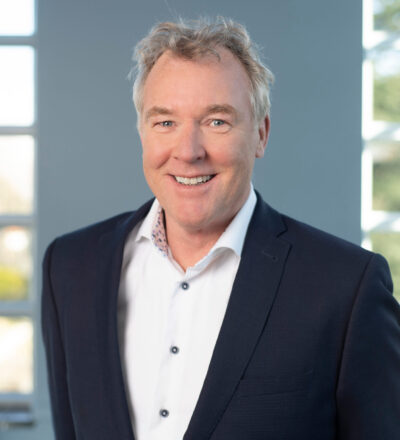The transition to a circular, clean industry and economy is a disruptive journey. It is a turbulent voyage over rough seas, with the ship creaking, water hitting the ship, and everyone getting wet at least once. Fortunately, more and more people realize that we are all in the same boat and that it comes down to working together. To do so, we need to combine forces and set a positive tone for the common good. And above all: we should not look back at the old world we are leaving behind, but looking forward to a creating a new one. Tjeerd Jongsma shares his vision on the transition.
Tjeerd: “When talking about the energy transition, we may be tempted to talk in the future tense, as if we have yet to make the journey together. But we are long gone. When I think back to the early days of ISPT, we were a real frontrunner. Around 2010, a sustainable business was something to distinguish yourself with. Now it’s a prerequisite for running your business. That makes me feel positive. Apparently, the mindset has changed and we all think it is important to commit to renewable energy and reuse of resources and materials.”
Trial and error
In a transition, the mental component is the hardest to overcome. Yet, that button seems to have been flipped by the vast majority, says Tjeerd. “With current energy prices, we are all feeling the effects of the fossil driven economy and we know that this cannot be sustained for very long. For energy-intensive companies, the disruption is even heavier. Some are finding that their business models can no longer be sustained. Companies that have invested in sustainability and renewable energy are now frontrunners. No, the transition will not be gradual. It will happen by trial and error.”
Everyone will get wet, at least once
Tjeerd Jongsma
We need to redefine our economy
But, he states, the transition is not an individual task. “We need to look forward at how to shape the new reality. A redefinition of our economy is needed. What economic activities fit in the Netherlands and Europe, given the planned supply of renewable energy? The answer to that question starts with the consumer. What are primary provisions? And how do we produce these in a circular, clean, energy-efficient and value-added way? I hope that this will take us away from a supply-driven market full of cheap products to a demand-driven economy focused on what we really need.”
Positive energy: let’s show what we can do
Tjeerd: “I believe in a transition that is driven by creating positive energy. Focus on what is possible. It helps if the industry takes the lead in this positive flow. For each sector, draw up a manifesto of the direction you want to take together with the points needed to reach that end point. Share this with society and politicians so that we can put our shoulders to the wheel together. “
Closing chains
Togetherness is the crux of working at ISPT. Tjeerd: “Under the direction of our innovation platform, we help form and close chains. For example, for the reuse of plastics, where we bring together chemical companies, packaging manufacturers, food producers and waste companies as key players to work together on solutions around issues such as design for recycling and physical separation. Or by making agrifood chains circular in many ways so that we can continue to sustainably feed the world’s population with healthy, nutritious quality food. This fits the Netherlands: not excluding each other in advance, not putting individual business interests first, but being willing to join hands. With a long tradition of poldering and working together, we can work towards a bright future.”
More about Tjeerd Jongsma
Tjeerd Jongsma is corporate director of ISPT. He is known by some as a visionary, by others for his stubborn stubbornness. Fortunately compensated by a large dose of charisma. He is convinced that we can only meet the great social challenge of the energy and raw materials transition if we link it to the private context.

